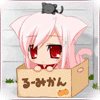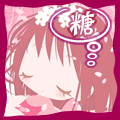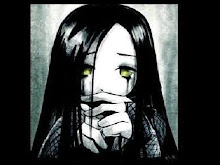The Iliad is about the Wrath of Achilles arising from an affront to his honour by the hubristic Agamemnon... but, it is also about many other things, both human and divine: it is a work which, though now printed and finally consigned to a permanent recension, is paradoxically in a state of constant flux, for no two readings ever seem to be alike.
BOOK I
A quarrel between Achilles and Agamemnon ensues over the return of Chryseis to her father. Athene dissuades Achilles from rash action, but he swears he will not fight again. He calls his mother Thetis from the depths of the sea and asks her to obtain from Zeus some gratification of his resentment. Thetis agrees to do so when the gods shall have returned from their twelve day banquet among the Ethiopians. Meanwhile Odysseus has returned Chryseis to her father, who placates the god towards the Greeks. Thetis lays her request before Zeus, who nods assent. His intentions are kept secret from all, including Hera, despite her bitter complaints. It is left for the cupbearer Hephaestus--lame and the butt of everyone's joke--to bring back the laughter which should accompany the feasts of the immortals.
BOOK XIII
Despite the commands of Zeus, the gods who favour the Achaeans can remain onlookers of their peril no longer. Poseidon, in the guise of Calchas, encourages them to fight bravely: later, in the shape now of Thoas, he is further grieved to see his grandson Amphimachus slain by Hector. In the long drawnout battle that follows, in which Idomeneus, king of Crete, plays a dominating part, Achaean resistance grows stiffer. Polydamas calls for a concentration of the Trojan force and in a council of war warns Hector that Achilles will not remain idle much longer. Hector accepts the advice to call his men together, but disregards the reference to Achilles. The battle goes on.
BOOK II
Zeus sends a dream commanding Agamemnon to attack Troy. The king tells the elders and assembles the army. It is now near the end of the ninth year, and it seems advisable to sound the feelings of the warriors. Agamemnon pretends a desire to return home, and the idea is more popular than he had thought. The attitude of the army delays the joining of battle, but Odysseus and Nestor rally the ranks for war: Thersites rails against the leaders, but is put to silence. A succession of highly wrought similes now describes the marshalling of the army: then follows a fresh invocation of the Muses to give an accurate account of Greek strength in the Catalogue of Ships, which is followed by a shorter catalogue of the Trojan Forces. BOOK XIV
Nestor now leaves Machaon, whom he has been tending in his pavilion, to find how the battle is going. He meets Diomede, Odysseus and Agamemnon, all returning wounded from the fray. For the third time Agamemnon speaks of withdrawal, now in terms of flight under cover of darkness. Odysseus and Diomede disagree: Poseidon encourages the king, and his voice puts heart into the army. Female cunning now enters the lists: Hera borrows Aphrodite's enchanted saltire and rouses Zeus' passion on Mount Ida, where he soon enough falls asleep. Her helper Hypnus hastens to the plain to tell Poseidon that he can now help the Greeks without thought of Zeus. The god vigorously encourages them, and soon a stone from Ajax lays Hector low. He is long senseless, and meanwhile the Trojans suffer other setbacks.
BOOK III
Despite these elaborate preliminaries, general battle is not yet to be joined. A new delaying device holds up the increasing pressure of events. Paris declares himself ready to settle the issue by single combat with Menelaus, and at the last minute an armistice is declared. Iris takes human form, speaks to Helen, and the latter goes up to the wall over the Scaean gate, where Priam and the elders are gazing onto the plain. At the king's request she names and points out the greatest warriors of the Achaeans. Priam is then called into the field to swear that he will abide by the issue of the single combat. Menelaus' sword breaks on Paris' helmet: he seizes him by the chinstrap and drags him towards the Achaean lines. Paris' fate seems sealed, but Aphrodite makes the strap break, and rescues Paris in a cloud, taking him back to his own house. Then, taking the shape of an old woman, she bullies Helen and drives her into Paris' arms. This striking deliverance of Aphrodite's favourite has created an ambiguous situation: Paris is dallying with Helen, while Menelaus rages over the field seeking him. Agamemnon claims victory for his brother and the return of Helen and the booty: the war, he declares, is at an end. BOOK XV
The Trojans have been driven back over the ditch when Zeus wakes up and sees how he has been deceived. Hera has to obey his command and send Iris and Apollo to him. Now for the first time she fully learns his plan: Iris is to summon Poseidon from the field; Hector, strengthened by Apollo, will drive the Greeks back to the ships of Achilles, whereupon the latter will send Patroclus into battle. Patroclus will have many successes - he will even slay Sarpedon - but in the end he will fall by Hector's hand. In revenge Achilles will kill Hector, and from then on the fate of the Trojans will be sealed. In the end their city will be overthrown by a device of Athene's (the wooden horse). Hera conveys the commands of Zeus to Olympus, where Athene restrains Ares from a rash intervention in the battle. Poseidon unwillingly obeys the command brought by Iris, and Hector with renewed strength drives the Greeks back into their camp. Apollo himself levels the ditch and breaches the wall: the Greeks are panicstricken as he shakes the aegis. As the Trojans enter, Patroclus leaves the wounded Eurypylus and runs to Achilles. Already the Trojans bearing firebrands are approaching the nearest ships, and only Ajax still offers effective resistance.
BOOK IV
The Achaean king may be in earnest in this view, but in the ensuing scene in Olympus Zeus propounds it only to anger Hera and Athene. Both demand the destruction of Troy; but we are not yet told the cause of their hatred. At Hera's request Zeus agrees there is no other way of keeping his promise to Thetis to send Athene to the Trojan field, where she provokes Pandarus to break the armistice by shooting at Menelaus. The latter is wounded, but speedily healed by Machaon, son of Asclepius and physician to the army. Fighting is to be renewed: Agamemnon urges on the heroes with words of praise or censure. Last to be addressed is Diomedes, whom Agamemnon singles out for reproach. Unlike Achilles, Diomedes takes rebuke patiently; but Sthenelus retorts sharply. BOOK XVI
Patroclus' tearful entreaties are wasted on Achilles, who still cannot forget the injustice done him and has no time for Achaean self-pity. Nevertheless he sends Patroclus with the Myrmidons and lends him his own armour, telling him to repel the Trojans from the ships, but to go no further, lest he diminish Achilles' reputation or meet some god who favours the Trojans. Ajax is now exhausted, and Achilles urges Patroclus to make haste, praying to Zeus of Dodona to grant him a safe return. Patroclus drives back the Trojans from the ships and performs prodigies of velour. Sarpedon falls by his hand, the son of Zeus himself. The battle rages around his body; Zeus allows Apollo to shield it, and Sleep and Death convey it to Lycia. Patroclus forgets his friend's warning and attacks the very walls of Troy. He is repulsed by Apollo, who takes the form of Asius and summons Hector to fight him. As the sun sinks, the god himself comes behind Patroclus and strikes him between the shoulders, so that his arms fall from him. Euphorbus wounds him from behind with a spear, and Hector transfixes him with his lance.
BOOK V
Diomedes is now to the fore: Pandarus' arrow cannot hurt him; Athene strengthens him; his prowess is not content with mortal adversaries. He wounds Aphrodite in the hand as she intervenes to protect her son Aeneas: she flies to Olympus to be comforted by her mother Dione. Next Apollo protects Aeneas: Diomedes prepares to attack him too, but the god's warning voice keeps him back. With the encouragement and support of Ares the Trojans attack boldly. Hera and Athene plunge into the fray the latter even serves as Diomedes' charioteer. With their help he wounds Ares, who flees to Olympus, and the goddesses also withdraw. BOOK XVII
A furious battle rages round the corpse. Menelaus slays Euphorbus, but retreats before Hector, who strips Achilles' armour from Patroclus' body and puts it on. The Achaeans defend the body, stoutly led by Ajax. Thick darkness overtakes the combatants. Achilles' divine steeds, mourning for Patroclus, are given fresh heart by Zeus. Athene and Apollo add further fury to the fight around the corpse. At the prayer of Ajax, Zeus takes away the darkness: now Menelaus can look for Antilochus, the son of Nestor, and send him to Achilles with the fatal tidings. Victory inclines towards the Trojans, but Menelaus and Meriones drag away the body, while the two Ajaxes defend them from the angry onslaughts of the enemy.
BOOK VI
The Trojans' danger grows greater. The seer Helenus calls on Hector and Aeneas to rally the ranks; then he sends Hector into the city, where the women are to propitiate Athene with offerings and vows. Meanwhile Glaucus and Diomedes meet on the field of battle, recognize each other as guest friends, and exchange armour the Lycian's gold against the Argive's bronze. This encounter in the midst of the fighting serves as an example of knightly courtesy: it has another function also: to hold up the swift development of the action in the fifth book and to let us see what is happening in Troy. Hector hastens to his mother, and the Trojan women fall to their ineffective prayers. He next looks for Paris, to recall him to the field: he wishes to bid farewell to his wife and child, but they are not at home. He finds them by the Scaean gate, to which Andromache's fears have driven her. There is a conversation between husband and wife, full of love and grief, as if Hector were never more to return home. Andromache goes back to the house and mourns him as if he were already dead. Paris now joins Hector, and they return to the battle.
BOOK XVIII
Achilles is seized with such violent grief that Thetis and the Nereids come from the sea to comfort him. His mother offers him new arms, but says that Hector's death must shortly be followed by his own. The body of Patroclus is still in the gravest danger, and Achilles, directed by Iris and endowed with fearful stature by Athene, runs to the ditch, where his war-cry appals the Trojans. Hera hastily makes the sun set, and the battle ends. Polydamas repeats his warning, but Hector makes the Trojans camp in the field so as to renew the battle next day. Achilles bewails his dead friend, while Hephaestus at Thetis' entreaty makes new arms for him, in particular a wondrous shield with metal inlays displaying all the scenes of human life.
BOOK VII
Fighting now flares up again; but Athene and Apollo agree that it has gone far enough for the day, and that Hector should challenge one of the Achaeans to single combat. The seer Helenus transmits their decision, and Hector sends out his challenge. Ajax is chosen by lot to be his opponent. At the approach of night the combatants are separated by heralds, and the day ends as indecisively as it began. The Greeks decide to bury their dead next morning and to build a wall round their ships. The Trojans for their part ask for the return of the bodies of the fallen, and are willing, since Paris will not give up Helen, to return at all events the treasure. The Greeks reject the overture, but next morning the dead are collected and burned. The wall round the ships is built in the course of the next day BOOK XIX
At dawn Thetis brings these arms to her son, and preserves Patroclus' body with ambrosia. Achilles calls for a meeting of the host, briefly renouncing his resentment, while Agamemnon in a long speech laments the folly that Zeus had sent upon him and promises reparation. He also swears that he has never touched Briseis. Achilles' impatience will hardly brook delay while the army eats. The forces are marshalled and Achilles arms himself. His horse speaks, prophesying his death.
BOOK VIII
Zeus forbids the gods to take part in the battle, which he surveys from the summit of Ida. The fighting begins with the dawn, and at midday Zeus weighs the lots of the opposing armies: the scales decide for the Trojans. In the varying fortunes of the battle Diomedes remains the mainstay of the Achaeans, while Hector, confident of ultimate victory, is the champion of the Trojans. Hera is obstinate in her determination to break the commands of Zeus: she tries unsuccessfully to persuade Poseidon to intervene in the fighting, and gives fresh courage to Agamemnon, who prevails upon Zeus to spare the hard-pressed Achaean host. Hera tries to help them, but Iris brings her a peremptory command from Zeus. Now the Thunderer himself comes and explains his plan for the future: the next day is to bring even more misfortune to the Greeks, and Hector will remain unchecked until Achilles takes the field in defence of the ships and fighting rages round the corpse of Patroclus. Night ends the still indecisive battle, and Hector camps with his followers on the plain. BOOK XX
For the last battle, the most ferocious of all in the Iliad, Zeus leaves the gods free to do what they will. As they enter the lists, Zeus thunders, Poseidon sends an earthquake; but as yet they are spectators. Achilles first meets Aeneas, whom Poseidon rescues. Hector also is once more saved from death by Apollo. Achilles rages like a forest fire in dry woods.
BOOK IX
In his despondency Agamemnon now inclines to the counsel which in Book II he had proposed only to test reactions - to break off the war and go home. He is vigorously opposed by Diomedes: in a council of the princes Nestor suggests an appeal to Achilles. Agamemnon is willing to provide the necessary gifts for an embassy to Achilles, and Odysseus, Ajax and Phoenix set out to his tent. They are well received, and make speeches to win him over. Odysseus speaks with skill and address; Phoenix is more human and emotional, with well-chosen examples; the speech of Ajax is brief and soldierly. They move Achilles' feelings, but his resentment still cannot be assuaged: he will fight when Hector artacks his ships, not before. The ambassadors return with their bad news, but Diomedes urges all to be calm and confident. BOOK XXI
The battle beside the river is on a level of elemental savagery. Achilles fills the Scamander with corpses, and takes twelve youths prisoner to be sacrificed for Patroclus. Lycaon, Priam's son, pleads in vain for his life: he too is slain and thrown into the river. The river god protests, Achilles rages on unheeding, and Scamander now threatens him with his waters. The gods now take a hand; Hephaestus with his fire dries up the plain and defeats the river. By now the gods are fighting after their various fashions: Athene wounds Ares with a stone, but Apollo declines to fight with Poseidon over mortal men. Artemis is more bellicose, until Hera breaks her bow and arrows over her head. All the gods now return to Olympus. Agenor posts himself before the gate to withstand Achilles' assault, but Apollo rescues him, takes his shape, and lures Achilles away, so that the fleeing Trojans can withdraw within the walls.
BOOK X
Everyone is asleep except Agamemnon and Menelaus, who wander anxiously about the camp. Meeting each other outside, near the sentinels, they decide to send Odysseus and Diomedes to reconnoitre. Hector also has sent out a spy, Dolon, promising him the horses of Achilles. He falls in with the two Greeks, who find out all that he knows and then despatch him, having thus learned of the arrival of the Thracian king Rhesus with his splendid horses. They kill Rhesus and twelve of his followers, and ride back to camp with the horses. BOOK XXII
Hector remains in the field, despite the prayers of Priam and Hecuba that he should take refuge in the city. He recalls now how he was thrice warned by Polydamas and how he led his countrymen to destruction. Achilles approaches, and he flees from him three times round the walls of the city. Zeus weighs the fatal lots: that of Hector sinks. Apollo now deserts his favourite, and Athene checks his flight by appearing in the form of Deiphobus and promising help. Hector falls at the hand of Achilles. As in his anger, so in his revenge Achilles knows no bounds. The dying Hector had begged that his body be given back for burial: Achilles drags the corpse to the ships behind his chariot. Priam, Hecuba and Andromache break into wild lamentation.
BOOK XI
The next day's fighting (the description of which lasts until book 18) begins with the aristeia of Agamemnon. His arms are described in great detail. Once again the expected development of the action is held up: Agamemnon's prowess seems likely to unsettle Zeus' plan for the discomfiture of the Achaeans, but the god knows what he is about. He sends Iris to Hector, telling him to hold back while Agamemnon is fighting: his time will come when Agamemnon is wounded and leaves the field. So it comes to pass, but Odysseus and Diomedes maintain the battle on equal terms. The wounding of Diomedes leaves Odysseus in sore straits, and even Ajax now gives ground before the numbers of the enemy. Nestor takes the wounded Machaon onto his chariot: Achilles, viewing the battle from the prow of his ship, wants to know whom Nestor is rescuing, and sends Patroclus to find out. The old man holds Patroclus long in conversation and urges him to persuade Achilles to fight, or alternatively to give his arms to Patroclus and send him into the fray. Patroclus, moved by this appeal, hurries back: on his way he meets the wounded Eurypylus, who needs medical help and gives but a poor account of Greek prospects.
BOOK XXIII
Two corpses now await the purifying flames. Three times the Myrmidons march round the corpse of Patroclus; finally they hold the funeral feast. His shade appears to Achilles and prays for speedy cremation. Next morning the pyre is made ready: the flames are fed with sumptuous offerings - among them the twelve Trojan captives. The next day the bones of Patroclus are gathered together, and elaborate funeral games with costly prizes are celebrated. In the various contests Odysseus and Ajax are pitted against each other - craft against strength. The indecisive wrestling-match is a foretaste of the later 'judgment of arms' - a theme probably known to Homer. It is significant that Achilles, not hitherto noted for temperance of emotion or expression, plays the part of the peacemaker in a dispute over the chariot-race. Here we have an anticipation of the Achilles of the ransom scenes.
BOOK XII
The first verses of book 12 begin a new section - lasting until the end of 15 - of the great battle. At the start we find the Achaeans fighting to defend the wall round their ships, although their retreat from the battlefield has not been described. In fact, by a technique unusual in epic, it has taken place while Patroclus has his scenes with Nestor and Eurypylus. By the end of 15 Hector is about to set fire to the Greek ships. The intervening four books contain a sequence - only substantially interrupted by the machinations of Hera in 14 - of fluctuating fortune in general and individual encounter, deeds of heroes and deaths of lesser mortals, clearly composed as an artistic whole. After the retreat of the Achaeans to their ships, the Trojans try to storm the wall. Hector's first proposal, to drive at it headlong in their chariots, is opposed by Polydamas, who more wisely wishes to leave the chariots at the edge of the ditch. This is his first appearance as adviser and amender of Hector's counsels - a role which he sustains up till book 18. The fate of Asius, who assaults the wall singlehanded in his chariot, shows that Polydamas cannot be disregarded with impunity. The Trojans, attacking in five companies, are appalled by an evil omen, and Polydamas counsels withdrawal. Hector rejects the warning and renews the attack. Sarpedon breaks down part of the palisade, and Hector shatters one of the gates with a great stone.
BOOK XXIV
The anger and grief of Achilles are far from assuaged. Every day he drags Hector's body three times round Patroclus' grave. On the twelfth day the gods intervene. Against the wishes of the gods who hate the Trojans - it is here that we are first told of the judgment of Parisl as the cause of Hera's and Athene's hatred - Thetis is sent to Achilles to ask him to return the body of Hector. Iris persuades Priam to face a visit to the Greek camp. By night he sets out with rich gifts for the man who slew the noblest of his sons. Achilles thinks of his own father: both men weep and dismiss their anger and resentment. The angry and implacable Achilles has learned to open his heart to another's grief. Priam returns with Hector's body and the promise of an armistice of twelve days. Andromache, Hecuba and Helen bewail Hector. For nine days the Trojans gather wood; then Hector's pyre is kindled and his burial mound is built.
Search Blog
Wednesday, July 22, 2009
Subscribe to:
Post Comments (Atom)












No comments:
Post a Comment